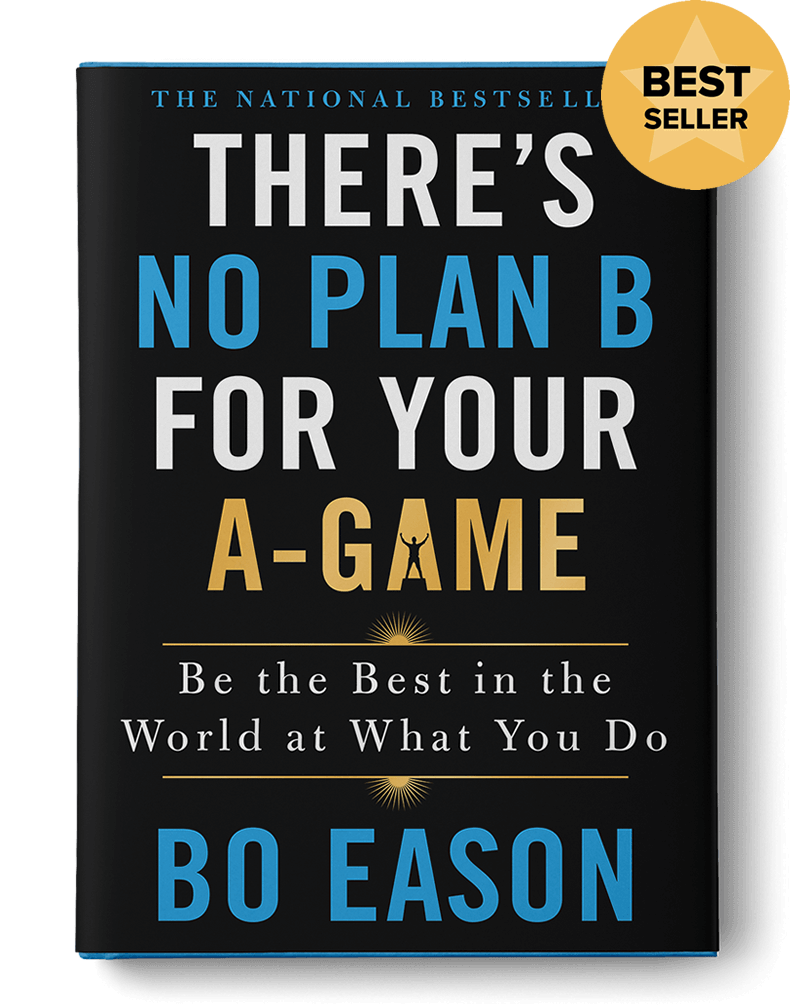I love being on stage, live, belly to belly with my audience. By the way, I love that phrase, “belly to belly,” because it captures what it's like to have an absolutely electric connection with your audience. You can literally feel their reactions to your words. You know if they're with you—or if they're distracted. There's nothing like it.
That's one of the biggest things I miss about doing events in person.
But as I prepared for my first all-virtual Personal Story Power Event, I realized something:
In certain ways, virtual presentations are
MORE intimate than in-person ones.
If this is something you can realize—and leverage—I think you'll find it a lot easier to connect with your audience online.
Here's my thinking on this:
#1: Intimacy Is Intimacy
First, I think we need to throw out the idea that the medium controls everything.
Whether you're on camera or in person, connection is connection. Intimacy is intimacy. Storytelling is storytelling.
Think of it this way: Can you have an intimate phone call with your husband or your wife? Of course you can. The same is true with Zoom.
It all starts with your intent. Make a deliberate decision to connect with your audience (and set up your tech to support this—more on this in a moment). Know, with every word you say and story you tell, that you're connecting through the camera to real bodies on the other side. That will set you up for success.
#2: Distance Makes a Difference
When I'm speaking from stage, I'm sometimes hundreds of feet from my audience. It's my job to use my story and my physicality to bridge that gap, to bring people closer so they feel like we're belly to belly.
However, when it comes to Zoom and other setups, we're literally in each other's faces. The camera sees every pore. That quickly creates an intimacy that you might not be able to get in person, especially if you're speaking to an audience that's far away or in total darkness.
#3: The Camera Sees Your Humanity
Dawn and I once took a filmmaking class, and we learned that the camera is only interested in one thing: your imperfections. When you're on stage, when you're hundreds of feet from people, under bright lights, you can conceal certain things.
That's not the case when you're on camera. The camera sees everything. So, when I'm confused on camera, you can tell I'm confused. I can't pretend. On stage, I might be able to hide it, but not when I'm on camera.
Now, here's the cool thing about this: The camera is interested in your humanity, not your perfection. If you can recognize this, you can use it to your advantage. If you try to seem perfect, the camera will reveal you as an imposter. Your audience won't trust you. They might not be able to articulate why, but they just won't connect with you.
So rather than trying to seem perfect on camera, embrace your imperfections and your humanity. The camera's going to reveal them anyway. When you don't fight who you are, you'll come across as real and congruent—and you'll form a much more intimate bond with your audience. When they see your genuine intent come through, your audience will follow you anywhere.
#4: Zoom Reveals More About Your Audience
When you sit in an audience and see me speak, I don't know a whole lot about you. I can feel your energy and attention, but that's about it. Now, when you join me for a virtual event, I get a peek inside your home. There's a certain intimacy there that's hard to build on stage. Then, maybe your cat or dog walks into the frame, and I can see you interact with them. That adds another layer of intimacy, doesn't it?
So here's the takeaway: Make sure you can see your audience when you're delivering virtually. It will add to your feeling of intimacy, and then you can send that feeling right back to your audience.
At the end of the day, I believe that the people who are going to lead going forward are the ones that don't have a false bone in their body. Embrace your humanity, your imperfections, and keep looking for ways to build intimacy with your audiences, online and offline. This will ensure that you're someone people can't look away from, no matter the format.
Take Action
What's your experience been in this all-virtual environment? Have you felt like it's more intimate, or less? I'd love to hear your experiences, whether you've been a presenter or an attendee. Leave me a comment below!

